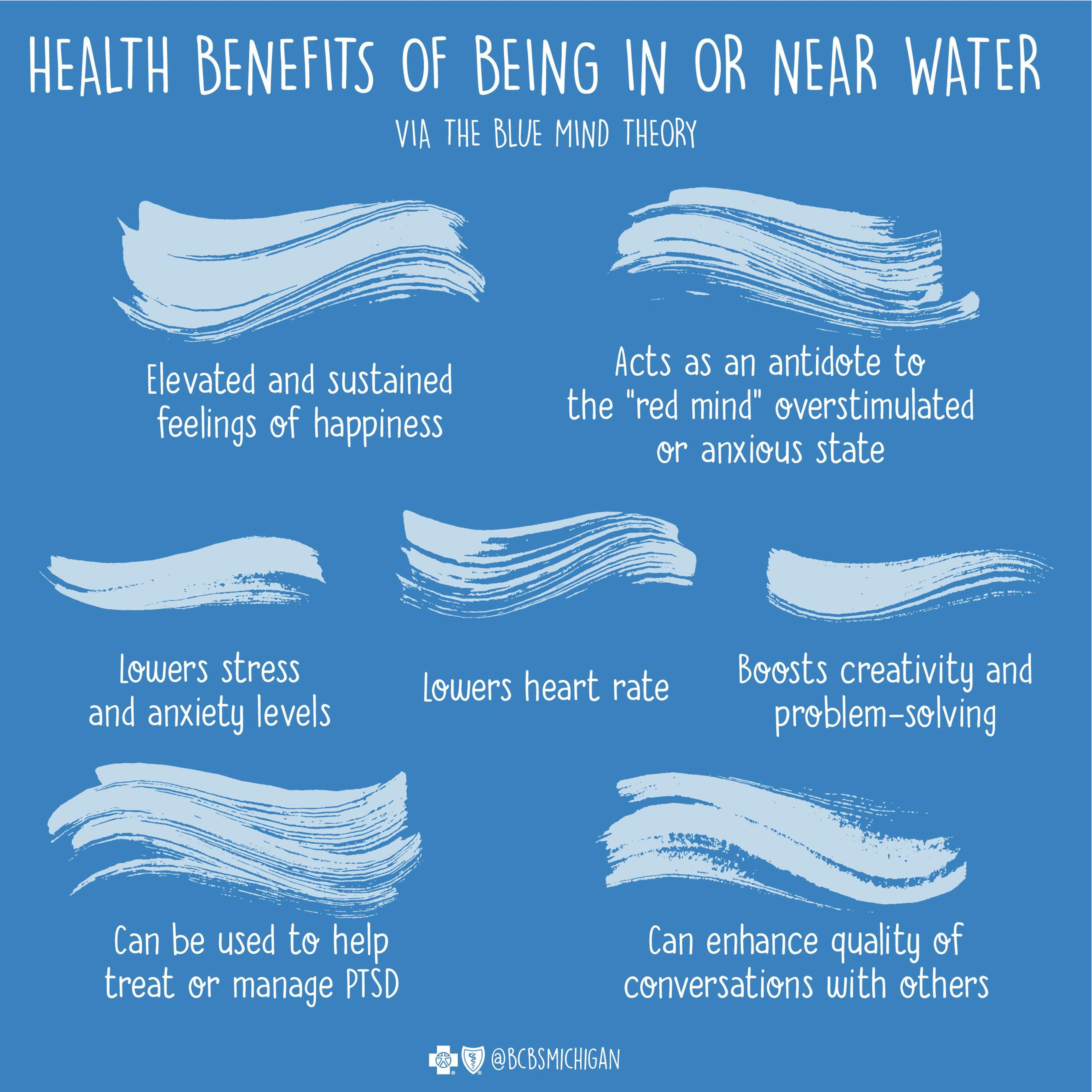Blue Mind Theory: The Effects of Water on Mental Health
Shandra Martinez
| 3 min read

There is something so soothing about the sound of waves lapping against a shoreline, or the rush of a river as it tumbles over rocks. On a hot day, we want to wade into water and cool off. When we get the chance to get on the water – whether in a boat, kayak or floating on a raft – it can be the most relaxing part of our day. If this describes your relationship with water, you’re likely already in tune with what researchers call Blue Mind Theory and its positive effects on mental health.
Blue Mind Theory. This started gaining traction nearly a decade ago when marine biologist Wallace Nichols wrote a book describing research that showed being in, on or just near water can make you feel happier, healthier and more relaxed. For many people, proximity to water has been shown to have physical and mental health benefits. Nichols went on to do TED talks and interviews about this water-based research. His findings quickly spread as people who already loved being near beaches, oceans or rivers found it underscored what they already knew to be true: Water can be a connecting and calming force.

Health benefits. The Blue Mind state describes a sense of peace that many people feel when they are in or near water. It’s been described as a mildly meditative state. Research shows the mental and physical health benefits include:
- Elevated and sustained feelings of happiness
- Acts as an antidote to the “red mind” overstimulated or anxious state
- Lowers stress and anxiety levels
- Lowers heart rate
- Boosts creativity and problem-solving
- Can enhance quality of conversations with others
- Can be used to help treat or manage PTSD
Inside vs outside. While being out in nature is always a mental-health booster, Blue Mind benefits can be achieved even if you are inside near water. This could be an indoor swimming pool, hot tub, or even a long soak in your own bathtub.
Blue color psychology. Designers will tell you the color of water can also be calming. The blue hues – whether they are deep blue or a tropical aquamarine – can lower people’s pulse rate and stress level and make them feel more relaxed.
Blue Mind abundance. More than anywhere else in this country, people in Michigan are uniquely located to embrace the most benefits from Blue Mind Theory. We are at the center of the Great Lakes states, surrounded by a glacier-carved system of huge, interconnecting lakes that make up 20% of the world’s surface fresh water. Many of us have grown up with trips to the beach, swimming or boating, or playing in rivers and streams. The Michigan Department of Natural Resources has put together some cool facts about just how connected we are to water in this state. Some of their findings, as compiled by MLive:
- People in Michigan are never more than 6 miles away from a body of water. This could be a Great Lake, a river, a stream or an inland lake.
- Michigan has nearly 3,300 miles of Great Lakes shoreline. So take a stroll, whether you’re hunting for Petoskey stones along the rim of Lake Michigan or walking along the Lake Huron shoreline.
- Michigan has more than 11,000 lakes. Not all of these beauties are well-known names like Houghton Lake or Lake Charlevoix, but our state has an abundance of outdoor recreation spots on lakes that are 5 acres in size or larger.
- Michigan has more than 1,300 boat launches. Whether you’re looking for a spot to push off in your kayak or drop in your fishing boat, there is likely a spot nearby that will be your gateway to a water adventure.
Related:
Photo credit: Getty Images





